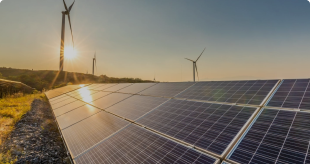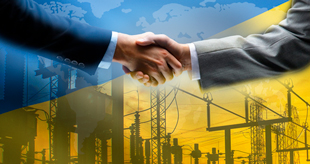Energy security remains one of the main strategic factors in NATO’s military doctrine. Recent events show that it has become a primary and increasingly significant challenge for the Alliance in the era of hybrid warfare.
An aggressive neighbor employs a range of hybrid threats targeting the energy assets, policies, and energy supply of NATO member states and Ukraine. Russia uses political and economic levers combined with disinformation campaigns against countries in order to undermine their efforts to reduce dependence on Russian energy sources.
Russia-backed cyberattacks on energy facilities have been detected both in Ukraine and in other countries. A clear example is the December 2015 “BlackEnergy” cyberattack on a power plant in Western Ukraine, which resulted in a six-hour electricity outage affecting nearly a quarter of a million residents. A year later, a more sophisticated attack targeted Kyiv’s power grid using malicious software.
The Annual National Programme under the auspices of the Ukraine–NATO Commission is a key tool for Ukraine to achieve NATO membership criteria. The ANP structure corresponds to the NATO Membership Action Plan, listing strategic objectives, content, tasks, and measures in the following areas: political and economic issues, defense and military issues, resource issues, security issues, and legal issues.
Annual National Programme under the auspices of the Ukraine–NATO Commission for 2021
On 23 February, the Cabinet of Ministers of Ukraine approved the draft Presidential Decree “On the Annual National Programme under the auspices of the Ukraine–NATO Commission for 2022” (hereinafter – ANP-2022).
In 2022, Ukraine chairs the Energy Community.
Regulatory acts on communication regarding Ukraine’s Euro-Atlantic integration
Communication Strategy on Ukraine’s Euro-Atlantic Integration for the period until 2025








